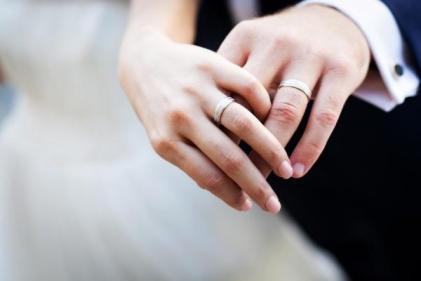You've done it. You've landed an interview to your dream job, at your dream company with the world's nicest team - now all you've got to do is shine at your interview.
Which, if you're anything like me, isn't as easy as it sounds.
Nerves can get the better of any of us, but it can fail to make our personalities and skills shine when we really need them to. The night before an interview, I'm second guessing everything - from my outfit to my journey to the office. I think of everything that could go wrong instead of right - but it never hurts to prepare for the worst. So here are some of the worst things you could in an interview - and how to avoid them.
Not researching

Showing up to the interview with no concept of the company’s history or current projects is a big no-no. Not only can these things give you talking points and the chance to show off your expertise, but the fact that you cared enough to research it will show that you’re a serious candidate who is invested enough to make the effort.
Researching the role is also important so that you can highlight your skills and qualities that match the job’s profile. Showing up unsure of what’s being asked of you will affect your answers and you’ll look unprepared if you’re not up to date on the job requirements.
Researching the person who’s interviewing you can be a little trickier, as you may not always be liaising with the person over email who will actually be interviewing you. If you know the company is on LinkedIn, go look at it’s list of who works there and see who you can find under recruitment or even HR – it never hurts to know a name or two, or find some mutual connections!
Dressing bright and bold

Depending on the job of course! There is some leeway with this, and we’re not suggesting showing up in funeral black, but be mindful of what you wear to the interview. We know, we know, how you look shouldn’t affect your job assessment, but the reality is that according to a survey by Classes and Careers, 70% of hiring managers don’t want candidates to be too ‘trendy’ looking.
It’s important to be yourself and to be in a workplace that values that, so you be sure to do you – but be mindful that darker colours or a more neutral palette is often considered more professional.
Not asking the right questions

You’ve probably already heard the interview tip to ask questions when they ask at the end if you have any, to show you’re interested, invested and willing to learn – but you may not have heard that there are certain types of questions you should be asking.
For example, questions about holiday time off, office food policies or about people working at the company probably aren’t appropriate or show off your stellar personality at an interview. Those kinds of queries can be asked later if you’re offered the job and you can get clarification on holiday leave and benefits.
Questions that will impress them and leave a lasting impression are key. Asking something like ‘How can an employee stand out as doing an amazing job in this role?’ shows them you want to take this job seriously and excel.
Arriving late

Even if you don’t have ‘good timekeeping’ on your CV, this is definitely a no. It shows not only a lack of consideration for the role, but to the people interviewing you and their schedule. If this interview wasn’t important enough for you to get there on time, how will you be once you actually have the job?
Tardiness is just bad manners, and we get that sometimes things happen like the bus never shows up or your tights rip right as you’re walking out the door, but you should never be so short on time that something like that makes you more than 2 or 3 minutes late. Give yourself more than enough time to get there, even if you end up standing there like a spare – if anything, it shows commitment and enthusiasm.
Speaking negatively about past jobs

Even if it was awful. You never know who knows who in your industry, and aside from that, speaking bitterly about a past post will have your interviewers on guard that you may have been the issue, even if you weren’t.
If you left under bad circumstances from a post, keep your answer about them civil and neutral, explaining truthfully and briefly, but in the best light possible why you had to leave. Don’t go on at length, and be sure to emphasise the skills you gained while there to turn the conversation back around to you and not the previous job.
Low energy

Yes, you may have been up all night the night before worried about this interview, but you cannot show that when you walk in the door. Come in with good energy, excited about the opportunity and sociable and ready to shine.
That being said, don’t come in like you’ve had ten coffees that morning. Enthusiasm is great and looked out for, but beware of coming on a little too strong due to your nerves. Smile and be friendly, but keep it professional and don’t let your nerves get in the way.
Displaying inappropriate body language

Crossed arms, bad posture, fidgeting or hair playing – we’ve all been guilty of all of them at some point – but your interview is not the time to break out these bad habits! How you present yourself is of utmost importance as physicality accounts for a lot of our first impressions of a person.
If we see someone hunched over or biting their nails or closed off in their body language, we assume they’re not interested, rude or even apathetic to the opportunity in front of them. Sitting up straight and being focused and attentive make a huge difference. A strong handshake, eye contact and active listening – nodding, reacting – show you’re invested in the conversation – and the role.





